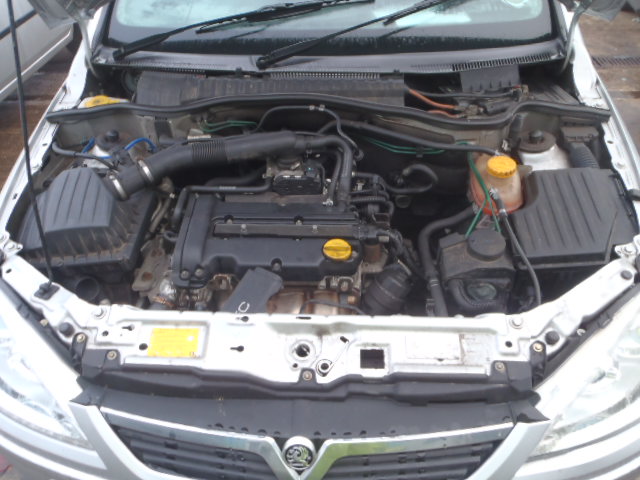Upgrade Your Experience: Opel Corsa 1.4 Engine Price Options Galore at Automobile Components Depot
Upgrade Your Experience: Opel Corsa 1.4 Engine Price Options Galore at Automobile Components Depot
Blog Article
Engine Buying Expert Tips on Selecting the Right Engine for Your Particular Requirements
Selecting the ideal engine for your details requirements involves a complex interplay of factors that go past mere horsepower numbers. By diving right into the details of power versus efficiency, assessing fuel ratings, and budgeting for lasting prices, one can truly maximize their engine choice.
Power Vs. Performance: Locating the Balance
When selecting an engine, it is vital to strike an equilibrium between power and effectiveness to satisfy your particular requirements effectively. Power describes the engine's capability to generate energy for propulsion, establishing aspects like acceleration, pulling capability, and overall efficiency - Opel Corsa 1.4 Engine Price. On the various other hand, effectiveness associates to how well the engine makes use of gas to produce power, affecting variables such as fuel economy and environmental friendliness
Attaining the right balance in between power and efficiency is essential since an engine that is as well powerful may eat extreme fuel, leading to greater operating expenses and unneeded strain on the setting. On the other hand, an engine that focuses on effectiveness over power may result in slow-moving efficiency, specifically sought after situations like towing hefty tons or driving uphill.
To make an informed decision, consider factors such as your typical driving conditions, the desired usage of the vehicle, and your individual preferences. By reviewing your top priorities and requirements, you can pick an engine that strikes the best equilibrium in between power and efficiency, making sure optimum performance while decreasing ecological impact and operating expense.
Comprehending Engine Dimension and Kind
To additionally improve the choice process of an engine that strikes the ideal equilibrium between power and effectiveness, it is crucial to explore the ins and outs of understanding engine dimension and kind. Engine size describes the total volume of air and gas that can be pressed via the engine cyndrical tubes. It is commonly gauged in litres or cubic centimeters. Larger engine dimensions usually cause more power outcome but can likewise bring about decreased fuel efficiency. On the various other hand, smaller engine dimensions are frequently much more fuel-efficient however may give up some power.
Usual engine types include inline engines, V engines, and rotary engines, each with its special advantages and downsides. Recognizing the interaction between engine size and kind is essential in picking an engine that aligns with your particular needs and concerns, whether it be power, effectiveness, or a balance of both.

Consider Your Car's Needs
If you are looking for an engine for a durable vehicle that will certainly be made use of for towing, you will certainly need an effective engine with high torque capabilities. On the other hand, if you are picking an engine for a compact auto mainly made use find out this here of for city travelling, gas performance may be a more essential aspect to think about.
If here you frequently drive in uneven or mountainous areas, a robust engine with excellent climbing up power will be needed. By lining up the engine specs with your vehicle's requirements, you can make sure that your lorry runs successfully and satisfies your performance assumptions.
Assessing Gas Performance Ratings
Evaluating gas effectiveness rankings is an important element of picking the appropriate engine for your automobile, making certain expense financial savings and ecological sustainability. Fuel performance ratings, normally measured in miles per gallon (MPG) for gasoline engines or kilowatt-hours per 100 miles (kWh/100 miles) for electric engines, suggest just how far a vehicle can travel on a details amount of gas or electrical energy. Higher MPG or reduced kWh/100 miles values represent much more reliable engines, converting to decreased gas prices and reduced carbon emissions.
Additionally, contrast different engine choices within the same lorry course to determine the most economical selection. Elements such as engine dimension, weight, the rules of aerodynamics, and hybrid or electric capabilities can all affect fuel effectiveness.
Budgeting for Long-Term Prices
Purposefully intending for long-lasting expenditures is vital when selecting an engine, ensuring financial sustainability over the lorry's lifespan. While the initial acquisition rate of an engine is a substantial aspect, it is important to consider the long-term costs linked with upkeep, repair work, and gas intake.
Moreover, researching the accessibility and cost of substitute components for the selected engine is vital in budget planning. Engines with budget-friendly and easily offered parts can significantly affect lasting upkeep expenditures. Furthermore, thinking about the engine's resilience and anticipated lifespan can help prevent unforeseen replacement prices in the future. By very carefully budgeting for these long-term expenditures and factoring them right news into the decision-making procedure, people can select an engine that not only meets their immediate needs however likewise stays economical throughout its life-span.
Conclusion
Finally, selecting the appropriate engine for your details demands requires stabilizing power and efficiency, understanding engine size and type, considering your vehicle's requirements, evaluating fuel efficiency ratings, and budgeting for long-term prices. By meticulously taking into consideration these variables, you can make certain that you pick an engine that fulfills your requirements and supplies ideal performance for your vehicle.
To further improve the choice process of an engine that strikes the optimum equilibrium between power and performance, it is necessary to dig into the ins and outs of understanding engine dimension and kind. Engine size refers to the total volume of air and gas that can be pressed with the engine cyndrical tubes. Typical engine types include inline engines, V engines, and rotating engines, each with its special advantages and downsides. Comprehending the interaction between engine dimension and type is vital in choosing an engine that aligns with your details needs and top priorities, whether it be power, effectiveness, or an equilibrium of both.

Report this page